Features
RESEARCH AT 16 FIVE-STAR HOTELS – PART ‘A’

CONFESSIONS OF A GLOBAL GYPSY
By Dr. Chandana (Chandi) Jayawardena DPhil
President – Chandi J. Associates Inc. Consulting, Canada
Founder & Administrator – Global Hospitality Forum
chandij@sympatico.ca
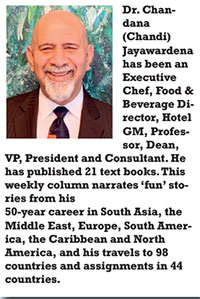
I was very pleased when in 1984 the University of Surrey (UoS) in the UK approved ‘Food and Beverage operations in the context of five-star London hotels’ as my M.Sc. dissertation topic. As directed by my supervisor, Professor Richard Kotas, I read all of the books – cover to cover and journal articles ever written in English about Food and Beverage management and operations. That took over two months. I was also directed by him to answer three questions, to provide context in my research undertaking:
-
= What are luxury hotels?
-
=What is the history of British luxury hotels?
-
=How does Food and Beverage management play a vital role in London five-star hotels?
What are Luxury Hotels?
Many have attempted to define a luxury hotel. The word ‘luxury’ has different meanings to different people depending on their experiences and expectations. In many classification guides in 1984, words such as ‘de-luxe’, five-star’, ‘first-class’ or ‘exclusive’ were used by hoteliers and writers.
Some felt that the large size of a hotel was a disadvantage for the hoteliers to maintain true ‘five-star’ standards. In 1984, none of the largest 18 hotels (with between 1,029 and 530 rooms) in UK, were five-star ranked. The average size of the 21 five-star hotels in UK, was 261 rooms (ranging from 509 to 86 rooms). In 1984, the average age of these 21 hotels was 55 years. A majority (16) of them were in London.
The 16 five-star London hotels had a total of 48 food and beverage outlets (an average of three per hotel). Average banqueting capacity for sit-down meals was 406. Grosvenor House had the largest banqueting operation able to accommodate 1,500 guests for a sit-down meal.
Most countries in the world use some form of hotel classification system, out of which 65 systems in 1984 were enforced by the public sector. In UK, in 1984, the key hotel grading schemes were carried out by private organizations. The most famous and respected hotel grading scheme was done by the Automobile Association (AA). In my research, I found that up to 1984, nothing academically significant had been written about the British hotel classification schemes or the five-star hotel grading. That gap provided me an opportunity.
What is the History of British Luxury Hotels?
During the eleventh century, a few monastic institutions as well as private homes in Britain were used to provide accommodation to travellers. The English inn had probably originated from the practice of receiving travellers by private householders. Religion played a vital part determining people’s habits in consumption of food and beverages. Towards the late fourteenth century, solid-stone built structures replaced the sheds operated as ale-houses and taverns in the provinces and inns in London.
With the popularity of wagons and other wheeled transport towards the end of the 16th century, a larger scale Tudor Inn operation replaced the Medieval Inn. The eighteenth century was the turning point for gastronomy in Britain. Influenced by major cities in continental Europe, such as Paris, Vienna, as well as the main cities of Switzerland, the word ‘Hotel’ became common in Britain after 1760.
Proper hotels, with managers, receptionists, porters and page-boys, gradually became common in Britain only at the beginning of the nineteenth century. Large British hotels such as The Grand, The Great Eastern, The Euston, The Charing Cross, The Great Western Royal, and The Grosvenor were developed in that era. One common feature of these hotels was that all of them were located near major railway terminals in London.
The opening of The Langham on Regent Street, London in 1865, is generally considered the origin of true luxury hotels in UK. Bailey’s Hotel was opened eleven years after that in 1876, and the world-famous London hotel, The Savoy, opened in 1889. Around the same time, a few luxury hotels were opened in well-known resort cities and towns. In 1984, the oldest British hotel with a five-star rating was The Imperial in Torquay, which was opened in 1866.
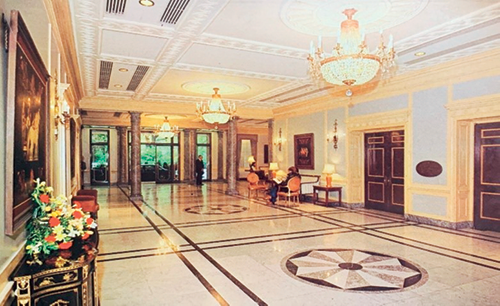
Using all British Connections for M.Sc. Research
The British hotel industry looked to London for the latest trends and London emerged easily as the trend setter of the industry. Within the five-star London hotels, the food and beverage departments appeared to be the most complex and versatile. In answering my third and most important research question – ‘How does food and beverage management play a vital role in London five-star hotels?’ I decided to work or observe in all 16 five-star hotels in London, and interview dozens of relevant managers.
During the first half of the twentieth century, most five-star hotels around the world did not make much profits from their food and beverage operations. From an economic stand point it was important to attempt to break even. More emphasis was given to rooms, because this was where the money was made. The concept of food and beverage manager or director was relatively new in the world. This concept was developed only in the 1960s by major hotel chains in USA, combining the technical know-how with the business administration skills, aiming to optimize profits.
The food and beverage manager/director of a five-star hotel usually was responsible for nearly half the hotel’s employees (in 1984, in London it was 48%) and administered a range of complex departments such as kitchens, restaurants, bars, banqueting, events, room service, stewarding, and at times, mini bars, as well as, food and beverage controls. Having gained experience as an executive chef and food and beverage manager of two small resort hotels in Sri Lanka in mid-1970s, I focused on securing the position of the food and beverage manager/director of a large five-star international hotel, by mid-1980s.
I developed a one-page research questionnaire which was mailed to all 16 five-star hotels in London. I used my previously established contacts in UK to ensure that I received prompt and positive responses from each hotel. For my research interviews, I used 14 open ended questions. I loved this research undertaking, and was passionate about it. I knew that it would help me to reach my next career goal. I wanted to do much more than what was required of me by the university. I was hungry for useful knowledge.
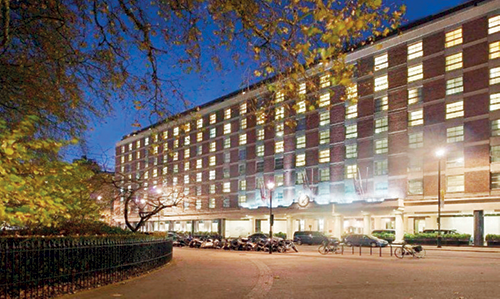
I commenced my research interviews with people I knew well. I travelled to Cosham and Portsmouth to interview a couple of hospitality experts who supported me during my ILO/UNDP fellowship in 1982. I also contacted two Senior Lecturers of the South Devon Technical College, who had presented a two-week Hotel Management seminar in Sri Lanka in 1982. Having attended this seminar, I became friends with them.
“Chandi, why don’t you take a break from your hectic schedule in London and visit Dr. David Dann and I in Torquay? You both spend a weekend at my home and try my wife, Clair’s British cooking skills”, Tim Hornsey invited us over the telephone. Torquay is a beautiful seaside town in Devon, with numerous archaeological remains dating back to pre-historic times. In addition to hosting us, Tim and David and their wives took us to see The Imperial. They also arranged for me to interview the renowned hotelier who managed it, Harry Murray.
Using Part-time Work for Research
My readings, research interviews and informal discussions provided an enormous amount of data pertaining to my research topic. In addition, I collected many brochures, menus, wine cards, promotional material, control documents etc. from most of the London five-star hotels. These were carefully analysed prior to writing the dissertation. However, mid-way during the research activity, I felt strongly that in order to obtain insight into the actual hotel operations, it would be ideal to work in different capacities in various hotels.
I continued to work at The Dorchester as a part-time banquet waiter. Due to that valuable experience in the best hotel in UK, I was able to find part-time work in two other five-star hotels on Park Lane – London Hilton and InterContinental London. I also began working as a part-time banquet waiter at Claridge’s, which had opened in the nineteenth century. Doing similar work in four five-star hotels concurrently, provided me an excellent opportunity to compare and contrast their standards in food and beverage operations and banqueting.
Although I liked the old-world charm of Claridge’s and The Dorchester, I found that the food and beverage operations of the newer (originally) American chain hotels, InterContinental and Hilton, were far more efficient. Having previously worked at two InterContinental hotels in two other countries (Sri Lanka in 1973 and Hong Kong in 1981), I was familiar with their standards of operation in banquets. I was most impressed with the London Hilton, which had the most efficiently managed banquet operation in London.
As the demand on me to work as a banquet waiter in London increased, I became very busy. Often, I did three-hour shifts for meal services only. For such a short shift, I was paid only £8.40. On some days, I did three shifts in three hotels for breakfast, lunch and dinner. In between, I did research interviews. I became keen in gaining different types of five-star hotel experiences in London at a higher level.
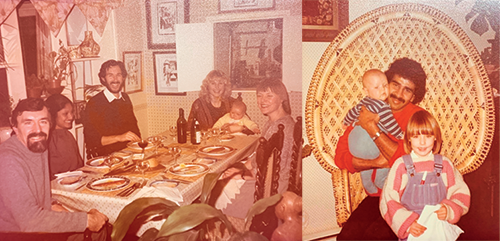
Using Management Trainee Positions for Research
I spoke with my friend, Mr. Wilfred Weragoda, the Food & Beverage Controller of The Dorchester. Based on my new request, he arranged for me to spend two weeks in his department as a Food & Beverage Controls Trainee. In addition to learning different aspects of Food and Beverage operations, that brief exposure opened new doors for me.
One day, I interviewed W. A. Lipscombe, Managing Director of Hallway Hotels in his office in London. He was a friend of Mark Bostock, then Chairman of John Keells Group, who arranged my first Management Trainee assignment in UK with Trust House Forte in 1979. Due to their friendship, I was able to secure with good pay an excellent management trainee position in a 500-room five-star hotel in London. Lipscombe told me, “Chandi, hotels in my company are not five-star. Therefore, I will use a good contact of mine – The Managing Director of The Churchill, to arrange six weeks exposure in six departments for you. I will tell Mark that I did you a favour.”
The Churchill experience was excellent. I spent a week each in six departments – purchasing, receiving bay and stores, food and beverage controls and accounts department, reservations, banquets, restaurants and room service, and finally, kitchen. I also did a few research interviews, there. The most useful interview was given to me on my last day at The Churchill, by the company’s Managing Director, G. Webb. I was also exposed to The Churchill’s four-star sister hotel in London, The Montcalm.
I was encouraged with the success of my Management Trainee assignments at The Dorchester and The Churchill, in the context of enhancing my graduate research and acquiring experience and knowledge. These exposures also improved my résumé. With that enthusiasm, I approached my contacts at Trust House Forte, who arranged a short Management Trainee assignment for me at the 85-year-old five-star, The Hyde Park Hotel. There, I worked directly under its veteran General Manager, A. Grosso, who also gave me an opportunity to conduct one of my longest and useful research interviews.
Soon after that I was sent to the Trust House Forte Group’s flagship hotel, Grosvenor House, for a couple of weeks. I was pleased with this opportunity as Grosvenor House had the largest five-star Food and Beverage operations in UK. I did a few more research interviews there. One of those I interviewed was Ben Davis, the Food & Beverage Manager. In 1990’s both Ben and I held the same position in the Caribbean, as the General Manager of Trust House Forte’s 360-room five-star hotel – Jamaica Pegasus/Forte Grand.
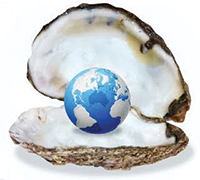
I enjoyed full-day orientations at four five-star hotels in London at the commencement of each of my Management Trainee assignments. The most memorable orientation was at The Dorchester, due to one gentleman who made a big, positive impact. It was Udo Schlentrich, General Manager of The Dorchester. He was the only General Manager who met each group of new employees during their orientation. This Austrian-born hotelier trained in the best two hotel schools in the world (Lausanne in Switzerland and Cornell in USA), said something during the orientation, which remained permanently in my mind.
Udo Schlentrich said, “Thank you for joining the best British hotel – The Dorchester. Ladies and gentleman, as the General Manager I am just the conductor of the orchestra, but it is all of you who provide the music. Please do your best, to make our customer happy.” After that he had his lunch at the staff cafeteria with the new employees in the orientation. He sat next to me and had a friendly chat over lunch. He also gave me a research interview. Udo was a big inspiration to me. In later years, like me, at the hight of his hotel career he did a doctorate and became a professor.
The rest of my career, whenever there was an orientation in a hotel which I managed, I thought of what Udo Schlentrich did at the Dorchester in 1984, and I did something similar. The best practices one learns in the real-world trumps academic learning in universities.
Will continue in next week’s column: ‘Research at 16 Five-star Hotels – Part ‘B”.
Features
A plural society requires plural governance

The local government elections that took place last week saw a consolidation of the democratic system in the country. The government followed the rules of elections to a greater extent than its recent predecessors some of whom continue to be active on the political stage. Particularly noteworthy was the absence of the large-scale abuse of state resources, both media and financial, which had become normalised under successive governments in the past four decades. Reports by independent election monitoring organisations made mention of this improvement in the country’s democratic culture.
In a world where democracy is under siege even in long-established democracies, Sri Lanka’s improvement in electoral integrity is cause for optimism. It also offers a reminder that democracy is always a work in progress, ever vulnerable to erosion and needs to be constantly fought for. The strengthening of faith in democracy as a result of these elections is encouraging. The satisfaction expressed by the political parties that contested the elections is a sign that democracy in Sri Lanka is strong. Most of them saw some improvement in their positions from which they took reassurance about their respective futures.
The local government elections also confirmed that the NPP and its core comprising the JVP are no longer at the fringes of the polity. The NPP has established itself as a mainstream party with an all-island presence, and remarkably so to a greater extent than any other political party. This was seen at the general elections, where the NPP won a majority of seats in 21 of the country’s 22 electoral districts. This was a feat no other political party has ever done. This is also a success that is challenging to replicate. At the present local government elections, the NPP was successful in retaining its all-island presence although not to the same degree.
Consolidating Support
Much attention has been given to the relative decline in the ruling party’s vote share from the 61 percent it secured in December’s general election to 43 percent in the local elections. This slippage has been interpreted by some as a sign of waning popularity. However, such a reading overlooks the broader trajectory of political change. Just three years ago, the NPP and its allied parties polled less than five percent nationally. That they now command over 40 percent of the vote represents a profound transformation in voter preferences and political culture. What is even more significant is the stability of this support base, which now surpasses that of any rival. The votes obtained by the NPP at these elections were double those of its nearest rival.
The electoral outcomes in the north and east, which were largely won by parties representing the Tamil and Muslim communities, is a warning signal that ethnic conflict lurks beneath the surface. The success of the minority parties signals the different needs and aspirations of the ethnic and religious minority electorates, and the need for the government to engage more fully with them. Apart from the problems of poverty, lack of development, inadequate access to economic resources and antipathy to excessive corruption that people of the north and east share in common with those in other parts of the country, they also have special problems that other sections of the population do not have. These would include problems of military takeover of their lands, missing persons and persons incarcerated for long periods either without trial or convictions under the draconian Prevention of Terrorism Act (which permits confessions made to security forces to be made admissible for purposes of conviction) and the long time quest for self-rule in the areas of their predominance
The government’s failure to address these longstanding issues with urgency appears to have caused disaffection in electorate in the north and east. While structural change is necessarily complex and slow, delays can be misinterpreted as disinterest or disregard, especially by minorities already accustomed to marginalisation. The lack of visible progress on issues central to minority communities fosters a sense of exclusion and deepens political divides. Even so, it is worth noting that the NPP’s vote in the north and east was not insignificant. It came despite the NPP not tailoring its message to ethnic grievances. The NPP has presented a vision of national reform grounded in shared values of justice, accountability, development, and equality.
Translating electoral gains into meaningful governance will require more than slogans. The failure to swiftly address matters deemed to be important by the people of those areas appears to have cost the NPP votes amongst the ethnic and religious minorities, but even here it is necessary to keep matters in perspective. The NPP came first in terms of seats won in two of the seven electoral districts of the north and east. They came second in five others. The fact that the NPP continued to win significant support indicates that its approach of equity in development and equal rights for all has resonance. This was despite the Tamil and Muslim parties making appeals to the electorate on nationalist or ethnic grounds.
Slow Change
Whether in the north and east or outside it, the government is perceived to be slow in delivering on its promises. In the context of the promise of system change, it can be appreciated that such a change will be resisted tooth and nail by those with vested interests in the continuation of the old system. System change will invariably be resisted at multiple levels. The problem is that the slow pace of change may be seen by ethnic and religious minorities as being due to the disregard of their interests. However, the system change is coming slow not only in the north and east, but also in the entire country.
At the general election in December last year, the NPP won an unprecedented number of parliamentary seats in both the country as well as in the north and east. But it has still to make use of its 2/3 majority to make the changes that its super majority permits it to do. With control of 267 out of 339 local councils, but without outright majorities in most, it must now engage in coalition-building and consensus-seeking if it wishes to govern at the local level. This will be a challenge for a party whose identity has long been built on principled opposition to elite patronage, corruption and abuse of power rather than to governance. General Secretary of the JVP, Tilvin Silva, has signaled a reluctance to form alliances with discredited parties but has expressed openness to working with independent candidates who share the party’s values. This position can and should be extended, especially in the north and east, to include political formations that represent minority communities and have remained outside the tainted mainstream.
In a plural and multi-ethnic society like Sri Lanka, democratic legitimacy and effective governance requires coalition-building. By engaging with locally legitimate minority parties, especially in the north and east, the NPP can engage in principled governance without compromising its core values. This needs to be extended to the local government authorities in the rest of the country as well. As the 19th century English political philosopher John Stuart Mill observed, “The worth of a state in the long run is the worth of the individuals composing it,” and in plural societies, that worth can only be realised through inclusive decision-making.
by Jehan Perera
Features
Commercialising research in Sri Lanka – not really the healthiest thing for research

In the early 2000s, a colleague, returning to Sri Lanka after a decade in a research-heavy first world university, complained to me that ‘there is no research culture in Sri Lanka’. But what exactly does having a ‘research culture’ mean? Is a lot of funding enough? What else has stopped us from working towards a productive and meaningful research culture? A concerted effort has been made to improve the research culture of state universities, though there are debates about how healthy such practices are (there is not much consideration of the same in private ‘universities’ in Sri Lanka but that is a discussion for another time). So, in the 25 years since my colleague bemoaned our situation, what has been happening?
What is a ‘research culture’?
A good research culture would be one where we – academics and students – have the resources to engage productively in research. This would mean infrastructure, training, wholesome mentoring, and that abstract thing called headspace. In a previous Kuppi column, I explained at length some of the issues we face as researchers in Sri Lankan universities, including outdated administrative regulations, poor financial resources, and such aspects. My perspective is from the social sciences, and might be different to other disciplines. Still, I feel that there are at least a few major problems that we all face.
Number one: Money is important.
Take the example American universities. Harvard University, according to Harvard Magazine, “received $686.5 million in federally sponsored research grants” for the fiscal year of 2024 but suddenly find themselves in a bind because of such funds being held back. Research funds in these universities typically goes towards building and maintenance of research labs and institutions, costs of equipment, material and other resources and stipends for graduate and other research assistants, conferences, etc. Without such an infusion of money towards research, the USA would not have been able to attracts (and keeps) the talent and brains of other countries. Without a large amount of money dedicated for research, Sri Lankan state universities, too, will not have the research culture it yearns for. Given the country’s austere economic situation, in the last several years, research funds have come mainly from self-generated funds and treasury funds. Yet, even when research funds are available (they are usually inadequate), we still have some additional problems.
Number two: Unending spools of red tape
In Sri Lankan universities red tape is endless. An MoU with a foreign research institution takes at least a year. Financial regulations surrounding the award and spending of research grants is frustrating.
Here’s a personal anecdote. In 2018, I applied for a small research grant from my university. Several months later, I was told I had been awarded it. It comes to me in installments of not more than Rs 100,000. To receive this installment, I must submit a voucher and wait a few weeks until it passes through various offices and gains various approvals. For mysterious financial reasons, asking for reimbursements is discouraged. Obviously then, if I were working on a time-sensitive study or if I needed a larger amount of money for equipment or research material, I would not be able to use this grant. MY research assistants, transcribers, etc., must be willing to wait for their payments until I receive this advance. In 2022, when I received a second advance, the red tape was even tighter. I was asked to spend the funds and settle accounts – within three weeks. ‘Should I ask my research assistants to do the work and wait a few weeks or months for payment? Or should I ask them not to do work until I get the advance and then finish it within three weeks so I can settle this advance?’ I asked in frustration.
Colleagues, who regularly use university grants, frustratedly go along with it; others may opt to work with organisations outside the university. At a university meeting, a few years ago, set up specifically to discuss how young researchers could be encouraged to do research, a group of senior researchers ended the meeting with a list of administrative and financial problems that need to be resolved if we want to foster ‘a research culture’. These are still unresolved. Here is where academic unions can intervene, though they seem to be more focused on salaries, permits and school quotas. If research is part of an academic’s role and responsibility, a research-friendly academic environment is not a privilege, but a labour issue and also impinges on academic freedom to generate new knowledge.
Number three: Instrumentalist research – a global epidemic
The quality of research is a growing concern, in Sri Lanka and globally. The competitiveness of the global research environment has produced seriously problematic phenomena, such as siphoning funding to ‘trendy’ topics, the predatory publications, predatory conferences, journal paper mills, publications with fake data, etc. Plagiarism, ghost writing and the unethical use of AI products are additional contemporary problems. In Sri Lanka, too, we can observe researchers publishing very fast – doing short studies, trying to publish quickly by sending articles to predatory journals, sending the same article to multiple journals at the same time, etc. Universities want more conferences rather than better conferences. Many universities in Sri Lanka have mandated that their doctoral candidates must publish journal articles before their thesis submission. As a consequence, novice researchers frequently fall prey to predatory journals. Universities have also encouraged faculties or departments to establish journals, which frequently have sub-par peer review.
Alongside this are short-sighted institutional changes. University Business Liankage cells, for instance, were established as part of the last World Bank loan cycle to universities. They are expected to help ‘commercialise’ research and focuses on research that can produce patents, and things that can be sold. Such narrow vision means that the broad swathe of research that is undertaken in universities are unseen and ignored, especially in the humanities and social sciences. A much larger vision could have undertaken the promotion of research rather than commercialisation of it, which can then extend to other types of research.
This brings us to the issue of what types of research is seen as ‘relevant’ or ‘useful’. This is a question that has significant repercussions. In one sense, research is an elitist endeavour. We assume that the public should trust us that public funds assigned for research will be spent on worth-while projects. Yet, not all research has an outcome that shows its worth or timeliness in the short term. Some research may not be understood other than by specialists. Therefore, funds, or time spent on some research projects, are not valued, and might seem a waste, or a privilege, until and unless a need for that knowledge suddenly arises.
A short example suffices. Since the 1970s, research on the structures of Sinhala and Sri Lankan Tamil languages (sound patterns, sentence structures of the spoken versions, etc.) have been nearly at a standstill. The interest in these topics are less, and expertise in these areas were not prioritised in the last 30 years. After all, it is not an area that can produce lucrative patents or obvious contributions to the nation’s development. But with digital technology and AI upon us, the need for systematic knowledge of these languages is sorely evident – digital technologies must be able to work in local languages to become useful to whole populations. Without a knowledge of the structures and sounds of local languages – especially the spoken varieties – people who cannot use English cannot use those devices and platforms. While providing impetus to research such structures, this need also validates utilitarian research.
This then is the problem with espousing instrumental ideologies of research. World Bank policies encourage a tying up between research and the country’s development goals. However, in a country like ours, where state policies are tied to election manifestos, the result is a set of research outputs that are tied to election cycles. If in 2019, the priority was national security, in 2025, it can be ‘Clean Sri Lanka’. Prioritising research linked to short-sighted visions of national development gains us little in the longer-term. At the same time, applying for competitive research grants internationally, which may have research agendas that are not nationally relevant, is problematic. These are issues of research ethics as well.
Concluding thoughts
In moving towards a ‘good research culture’, Sri Lankan state universities have fallen into the trap of adopting some of the problematic trends that have swept through the first world. Yet, since we are behind the times anyway, it is possible for us to see the damaging consequences of those issues, and to adopt the more fruitful processes. A slower, considerate approach to research priorities would be useful for Sri Lanka at this point. It is also a time for collective action to build a better research environment, looking at new relationships and collaborations, and mentoring in caring ways.
(Dr. Kaushalya Perera teaches at the Department of English, University of Colombo)
Kuppi is a politics and pedagogy happening on the margins of the lecture hall that parodies, subverts, and simultaneously reaffirms social hierarchies.
By Kaushalya Perera
Features
Melantha …in the spotlight

 Melantha Perera, who has been associated with many top bands in the past, due to his versatility as a musician, is now enjoying his solo career, as well … as a singer.
Melantha Perera, who has been associated with many top bands in the past, due to his versatility as a musician, is now enjoying his solo career, as well … as a singer.
He was invited to perform at the first ever ‘Noon2Moon’ event, held in Dubai, at The Huddle, CityMax Hotel, on Saturday, 3rd May.
It was 15 hours of non-stop music, featuring several artistes, with Melantha (the only Sri Lankan on the show), doing two sets.
According to reports coming my way, ‘Noon2Moon’ turned out to be the party of the year, with guests staying back till well past 3.00 am, although it was a 12.00 noon to 3.00 am event.

Having Arabic food
Melantha says he enjoyed every minute he spent on stage as the crowd, made up mostly of Indians, loved the setup.
“I included a few Sinhala songs as there were some Sri Lankans, as well, in the scene.”
Allwyn H. Stephen, who is based in the UAE, was overjoyed with the success of ‘Noon2Moon’.
Says Allwyn: “The 1st ever Noon2Moon event in Dubai … yes, we delivered as promised. Thank you to the artistes for the fab entertainment, the staff of The Huddle UAE , the sound engineers, our sponsors, my supporters for sharing and supporting and, most importantly, all those who attended and stayed back till way past 3.00 am.”

Melantha:
Dubai and
then Oman
Allwyn, by the way, came into the showbiz scene, in a big way, when he featured artistes, live on social media, in a programme called TNGlive, during the Covid-19 pandemic.
After his performance in Dubai, Melantha went over to Oman and was involved in a workshop – ‘Workshop with Melantha Perera’, organised by Clifford De Silva, CEO of Music Connection.
The Workshop included guitar, keyboard and singing/vocal training, with hands-on guidance from the legendary Melantha Perera, as stated by the sponsors, Music Connection.
Back in Colombo, Melantha will team up with his band Black Jackets for their regular dates at the Hilton, on Fridays and Sundays, and on Tuesdays and Thursdays at Warehouse, Vauxhall Street.
Melantha also mentioned that Bright Light, Sri Lanka’s first musical band formed entirely by visually impaired youngsters, will give their maiden public performance on 7th June at the MJF Centre Auditorium in Katubadda, Moratuwa.
-

 Latest News6 days ago
Latest News6 days agoNPP win Maharagama Urban Council
-

 Features2 days ago
Features2 days agoSAITM Graduates Overcome Adversity, Excel Despite Challenges
-

 Business5 days ago
Business5 days agoJohn Keells Properties and MullenLowe unveil “Minutes Away”
-

 Sports2 days ago
Sports2 days agoASBC Asian U22 and Youth Boxing Championships from Monday
-

 News2 days ago
News2 days agoDestined to be pope:Brother says Leo XIV always wanted to be a priest
-

 Foreign News3 days ago
Foreign News3 days agoMexico sues Google over ‘Gulf of America’ name change
-
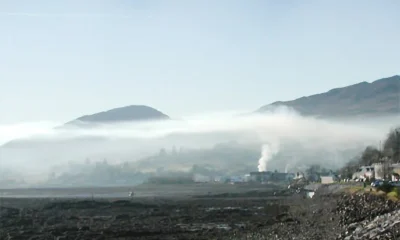
 Opinion5 days ago
Opinion5 days agoRatmalana: An international airport without modern navigational and landing aids
-

 Opinion2 days ago
Opinion2 days agoDrs. Navaratnam’s consultation fee three rupees NOT Rs. 300












